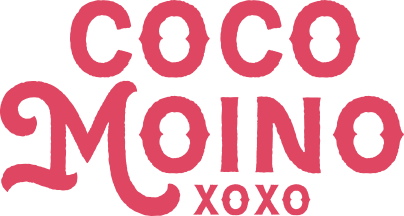Sustainability & Transparency
At Cocomoino, I take sustainability very seriously, and here's a few things that I do:
- Using as environmentally friendly packaging as possible. This means:
- re-using and up-cycling materials
- selecting materials that are as easy as possible to recycle (for example paper over plastics)
- Working as much as possible with sustainability-conscious partners. This is not always possible due to the financial constraints of buying small quantities as a very small business, but I am proud to already have a few, and it is an aim to one day only partner with like-minded businesses.
- Sourcing as much as possible products with recognized environmentally-friendly labels such as FSC, Blue Angel, EU Ecolabel, etc.) and made of recycled and/or renewable materials (such as hemp, or soy ink for example).
- For my art prints, using the most long-lasting materials (such as archival ink and museum-grade paper). Longevity means less potential trash.
- Working as much as possible with socially-conscious partners (refugee, crip- and queer-friendly, supporting independent artists, etc.)
- Being as transparent as possible on the origins of the materials I use (read more about this below).
- Sourcing products that don't contain animal parts or substances, and from partners that don't use animals in their fabrication process (obtaining legal confirmation of the latter point is difficult and at times impossible, but I keep working in this direction).
- Re-selling, donating or repurposing B-grade products rather than disposing of them, in order to avoid useless waste.
Transparency
Protective sleeves for art
Biodegradable PLA sleeves (usually made from corn or potato starch) are acidic and not suitable for storing archival grade prints. At the moment, the better alternative remains OPP plastic sleeves. On the positive side, OPP (oriented polypropylene) is one of those plastics that's very easily recyclable.
To avoid waste, I'm currently finishing my stock of PLA sleeves and compromising by wrapping prints in non-acidic tissue paper in order to isolate them, and including care instructions for my customers.
Discarding PLA sleeves
In many countries, PLA and other biodegradable matter can't be added yet in the compost bins. Make sure to check with your city/region. If in doubt, use the regular trash bin. They still are produced from renewable material and this is a good thing! Reuse when possible.
Countries of origin
- I source most of my materials (by order of preference) in 1) Germany (domestic), 2) other EU countries and the 3) United Kingdom. I am progressively replacing the United Kingdom with closer countries as I finish my stocks.
- A very small quantity of goods are sourced from China. These are products that are simply not produced in the EU (enamel pins) or that would have an otherwise unbearable cost (currently, my custom wrapping paper only).
Printing partner
For all my promotional printed matters (such as flyers, backing cards, etc.) I work with a local, environmentally-friendly printer. They use vegetal inks and recycled paper and are climate neutral.

